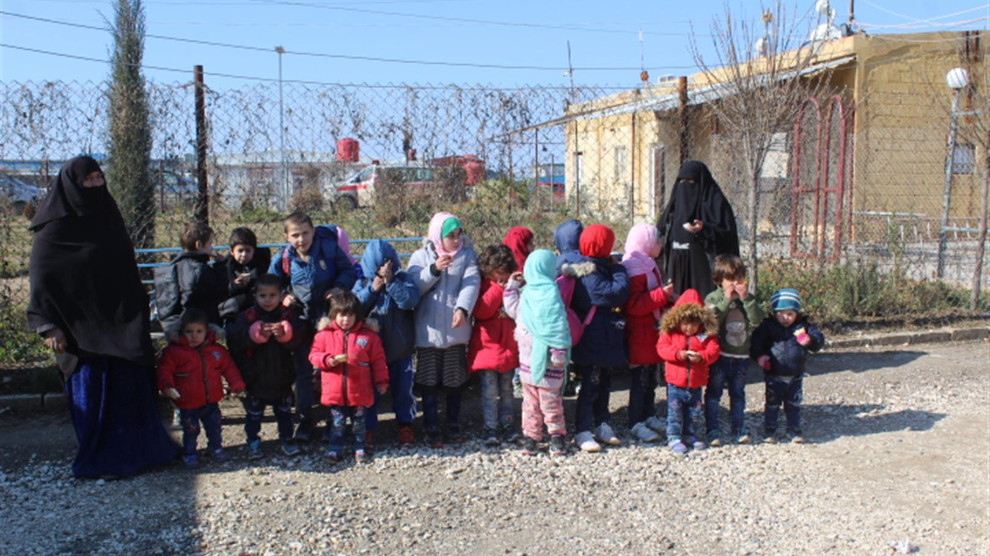Future of the children in Hol Camp in danger
Especially the orphans in Hol Camp live in a lack of prospects and without adequate care. Thus, neither the traces of ISIS indoctrination nor the traumas of war can be effectively combated.
Especially the orphans in Hol Camp live in a lack of prospects and without adequate care. Thus, neither the traces of ISIS indoctrination nor the traumas of war can be effectively combated.

The management of the Hol Camp in Northern Syria appealed to the international community over the situation of the children. There are thousands of ISIS families living in the camp with their children, and the situation is out of control in many areas due to the attacks by Turkey. The children are indoctrinated into the ideas of the ISIS. Thus a new generation of jihadists threatens to grow up.
According to the camp management, 68,223 people live in the camp, which is located about 40 kilometres west of Hesekê in northern Syria, 44,440 of the camp residents are children and adolescents. 18,079 of the minors are from Syria, 19,203 from Iraq and 7,158 from other countries. 224 are orphans, 104 live in sheltered accommodation.

"The future of all children in the camp is uncertain," explained the camp management. Most of the orphans have not even been registered so far, as they have been placed with other families or relatives, who often continue to educate them according to ISIS rules. The camp management pointed out a number of dangers to which the children are exposed.
In particular, the traumatisation caused by the ISIS massacres and torture is a major problem, according to the camp administration which said the following: "These children were torn from their families by the ISIS and given military training. They are afraid of their future and are helpless in every respect. The orphans find life in the camp particularly difficult and they refuse to attend school or participate in social activities. The children indoctrinated by the ISIS consider the other children as 'infidels'.
A large proportion of the children are sick. As there are few specialists and the health centres are bursting at the seams, the infection rates are rising.
As the children are not sent to school and there is no infrastructure to control school attendance, the children lack access to education.
A large proportion of the children in the orphanages are three years old or younger. Since the caregivers do not know who the children are and where they come from, it is difficult to establish successful communication.

Some of the children live with relatives who care for them or with families that adopted them. But since this measure is only temporarily, they need an orphanage afterwards.
The management of the camp continued: "We are very concerned about the future of the orphans here. As we do not have enough orphanage places, it is difficult for us to establish contact with the children. The care teams are not professionally trained. The teams are able to inform the children about health issues, but they are not able to provide psychological care for the children, which is urgently needed.
The autonomous administration has undertaken the responsibility for the children and proposes to open several child and youth centres with the help of organisations and associations and to provide professional care. It aims to encourage the children to build relationships with other children and to change their perspective in this way. Furthermore, the future of the children is intended to be secured.
Appeal to the international community
“In addition, as leaders of the camp, we call on governments and states to contact the autonomous administration, especially with regard to children. We believe that the current situation in the camp, even if temporary, is affecting the personal development of the children. The Autonomous Administration has repeatedly emphasized that it is looking for a solution for the foreign children. The preferred solution is to send them to their countries.”
